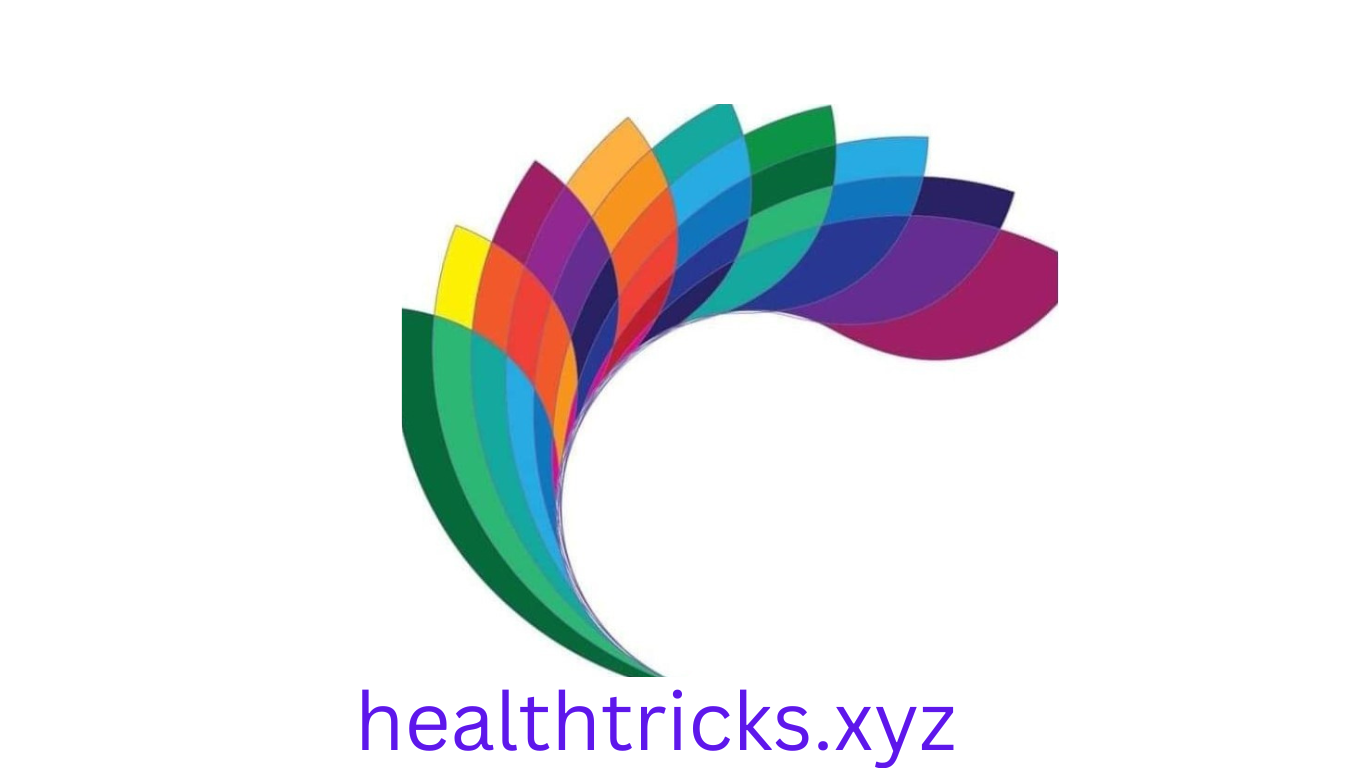In our fast-paced world, prioritizing health can often feel like a challenge, but understanding what constitutes essential wellness practices is vital. Through consistent daily habits and health checks, we can build a foundation of well-being that supports us in every aspect of life. Here’s our comprehensive guide to help you live a healthier, happier life, touching on essential areas like medical records, health care options, doctor accessibility, and holistic well-being.
1. My Health: Understanding the Foundation of Wellness
Building a healthy lifestyle begins with understanding my health—the complete picture of physical, mental, and emotional well-being. Keeping track of our health metrics and understanding our unique health needs is the foundation of lasting wellness. From regular checkups to balanced nutrition and mental health practices, each element contributes to the larger picture of everyday health.
2. Check My Body Health: Why Routine Health Checks Matter
Regular health assessments, or check my body health routines, provide crucial insights into our physical condition. By evaluating vital signs like blood pressure, cholesterol levels, BMI, and more, we can get a clearer picture of where we stand health-wise. Periodic checkups allow us to spot potential health issues early, making it easier to address them before they become serious.
Benefits of Regular Health Checks
- Early Detection of Illnesses: Routine exams help in identifying chronic diseases such as diabetes and hypertension at an early stage.
- Preventative Care: Regular health monitoring supports proactive steps toward maintaining health, reducing long-term medical costs.
- Personalized Health Plans: With insights from medical assessments, we can customize lifestyle changes for optimal well-being.
3. Check My Body Health Reviews: Evaluating Health Services
Choosing the right health services is essential for effective and efficient care. Check my body health reviews is an approach that ensures we’re selecting top-tier healthcare providers and facilities that meet our needs. Trusted reviews help in assessing the quality of medical services, allowing us to make informed choices about who will handle our health.
Factors to Consider in Health Service Reviews
- Doctor Expertise: Look for doctors with specialized training relevant to your needs.
- Facility Standards: Prioritize hospitals and clinics with a strong track record of safety, cleanliness, and advanced technology.
- Patient Satisfaction: Feedback from other patients provides valuable insights into the quality of care and overall experience.
4. My Health Record: The Importance of Medical Records
My health record is the comprehensive documentation of our medical history, treatments, and health data, playing an instrumental role in receiving accurate and consistent care. Keeping a detailed health record allows medical professionals to provide more targeted treatments, avoiding potential complications related to allergies, chronic conditions, or past treatments.
Tips for Managing Your Health Record Effectively
click here to know more information- Organize Medical Documents: Keep both digital and physical copies of all medical reports, lab results, and prescriptions.
- Update Regularly: Ensure that your health record is always current, including recent medications and any changes in health status.
- Use Digital Health Apps: Many apps allow easy storage and retrieval of health records, making it simpler to share with healthcare providers when needed.
5. My Health Policy: Protecting Your Health and Future
Health insurance is a cornerstone of proactive health management, and a well-planned my health policy helps us financially and emotionally prepare for unexpected medical needs. Choosing the right health policy covers critical care expenses, allowing us to focus on recovery rather than financial concerns.
Key Aspects of an Effective Health Policy
- Coverage Options: Understand what treatments, procedures, and medications your policy covers.
- Network of Hospitals: Opt for policies that include a wide network of accessible hospitals and clinics.
- Preventative Care Inclusion: Policies with preventative care coverage often provide benefits for routine checkups and wellness programs.
6. My Health Care: Choosing the Right Health Care Providers
Finding a health care provider who understands your needs is essential. My health care extends beyond just emergency treatment and includes routine monitoring, preventive care, and holistic wellness options. Working with reliable healthcare providers enables us to maintain a consistent wellness routine, reducing the need for urgent interventions.
Selecting a Trustworthy Health Care Provider
- Qualifications and Certifications: Ensure that the provider has recognized credentials and necessary expertise.
- Patient-Centered Care: Choose professionals known for compassionate, patient-focused care.
- Accessibility: Providers with flexible hours and multiple locations make it easier to access necessary care.
7. My Doctor: Finding and Building a Strong Patient-Doctor Relationship
Establishing a strong relationship with my doctor enhances trust and improves communication, which is crucial for effective healthcare. Our primary care physician plays a central role in coordinating our health needs, offering guidance, and referring specialists when necessary.
Tips for Finding the Right Doctor
- Seek Referrals: Ask family and friends or consult online resources to find highly recommended doctors.
- Consider Accessibility: Choose a doctor with a convenient office location and availability that fits your schedule.
- Review Communication Style: A doctor who communicates clearly and listens to your concerns can make a significant difference in the quality of care.
8. My Premise Health: Integrating Workplace Wellness Programs
Workplace wellness initiatives, often termed my premise health, are becoming essential in modern work environments. These programs offer resources such as fitness classes, health screenings, and mental wellness workshops to support employees in achieving a balanced, healthy life. Engaging in workplace health programs reduces stress and boosts productivity by promoting a supportive environment.
Advantages of Workplace Wellness Programs
- Reduced Absenteeism: Healthy employees take fewer sick days, contributing to better attendance.
- Increased Job Satisfaction: Wellness initiatives improve morale and create a positive work culture.
- Health Awareness: Programs educate employees on healthy habits, leading to lasting lifestyle changes.
9. My Health Life: Adopting a Holistic Approach to Health
A my health life approach emphasizes a balanced, all-encompassing lifestyle that nurtures physical, mental, and emotional health. This includes regular exercise, balanced nutrition, sufficient sleep, and stress management. Integrating these aspects of wellness into daily life helps us achieve sustained health benefits.
Elements of a Holistic Health Life
- Physical Fitness: Engage in regular exercise routines that align with your fitness goals and physical abilities.
- Nutritional Balance: Prioritize whole foods, and ensure a balanced intake of vitamins, minerals, and hydration.
- Mental Wellness: Practices like mindfulness, journaling, and meditation support mental health and emotional resilience.
10. My Access Health: Ensuring Health Resources Are Within Reach
Accessibility to healthcare is crucial, especially during emergencies. My access health ensures that we know where and how to access medical facilities, pharmacies, and urgent care centers quickly. Having a solid plan in place allows us to act swiftly and avoid delays in receiving necessary care.
Strategies for Effective Health Access
- Identify Nearest Health Centers: Know the location of nearby hospitals, clinics, and urgent care facilities.
- Utilize Health Apps: Many apps offer information on available health services, wait times, and directions.
- Emergency Contacts: Keep contact information for your primary care doctor and local emergency services readily accessible.
11. Check My Medical Report: Regular Health Monitoring
Regular monitoring, including check my medical report routines, is essential for long-term health. Reviewing medical reports after checkups allows us to track any changes in health status and adjust our habits accordingly.
Best Practices for Reviewing Medical Reports
- Analyze Trends: Look for changes or patterns in your health metrics to proactively address concerns.
- Consult with Your Doctor: Discuss findings with your physician to clarify any questions and understand implications.
- Keep a Health Journal: Track health results and lifestyle changes to observe what contributes positively to your health.
12. My Group Health: Leveraging Support Systems
A strong support system is critical to achieving and maintaining wellness. My group health encompasses friends, family, and community resources that encourage us to stay healthy and reach our goals.
Building a Supportive Health Network
- Join Fitness Groups: Exercising with others promotes consistency and keeps us motivated.
- Engage in Wellness Communities: Connect with like-minded people focused on health goals.
- Family Involvement: Involving family members in healthy habits fosters mutual support and long-term health.
Conclusion
Taking control of our health is an empowering journey that requires commitment to essential practices and resources. From medical records to routine checkups, health policy to workplace wellness, prioritizing my health helps us build a resilient, thriving lifestyle. With the right steps, knowledge, and support, we can ensure a healthier life, every day
Thanks



